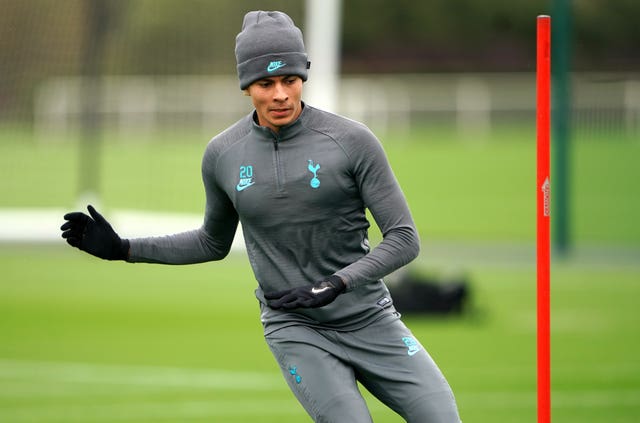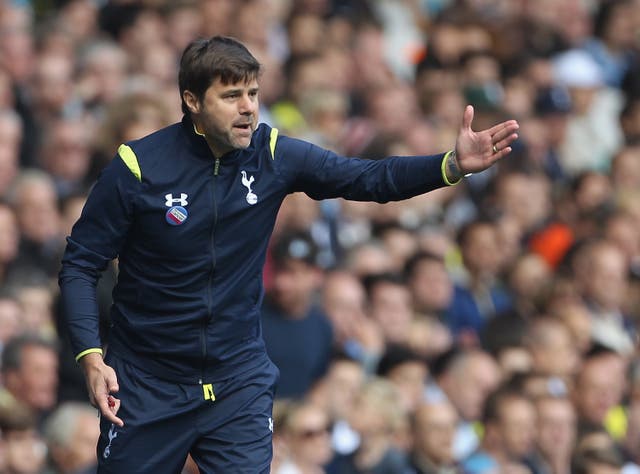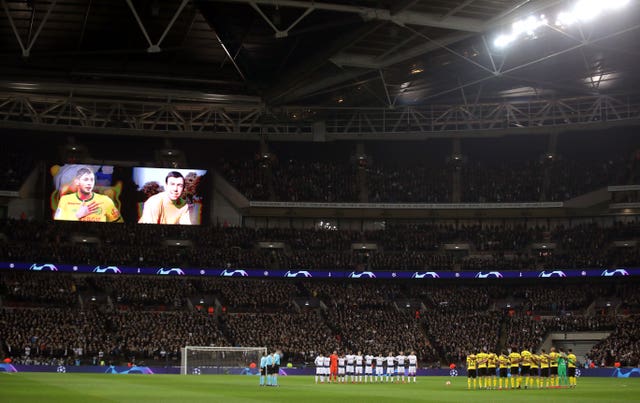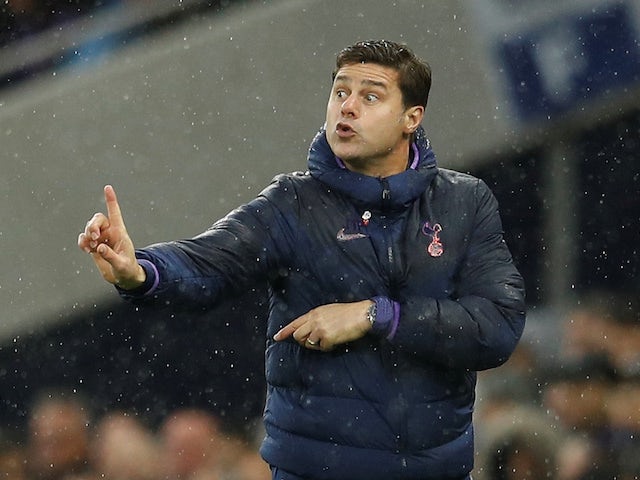As he walked over towards a wall of white in the Madrid heat, heartbroken at what had just gone on, the noise was deafening.
'He's magic you know, Mauricio Pochettino'.
Tottenham had just lost the Champions League final, the biggest game in their history, and there was a red sea of Liverpool fans revelling in their success at the other end of the stadium.
But the Spurs fans were also making themselves heard.
This angle. These scenes. 😍 😍 😍#UCL ⚪️ #COYS pic.twitter.com/e6IsMVkojR — Tottenham Hotspur (@SpursOfficial) May 12, 2019
They wanted to let their manager know just how grateful they were for the job he had done in transforming their club into one of the elite teams in Europe.
It seems impossible to think that just a few months on, Pochettino – a man they call a magician – has performed a vanishing act having been ruthlessly sacked by Spurs after a memorable five and a half years.
The lyrics to that song, which remained as loud as ever up until his firing, might just have underplayed it given the job he did in north London.
He took Spurs from perennial Europa League round of 32ers and Premier League also-rans to the biggest game in the club football and it was a swashbuckling ride.
Along the way there were two Premier League title challenges, which saw them post their highest league finish since 1963, four successive Champions League qualifications, a League Cup final and two FA Cup semi-finals.
There were magical wins against Manchester City, Manchester United, Liverpool, Chelsea, Real Madrid, Borussia Dortmund and of course Ajax. Who can forget Ajax? The greatest logic-defying trick of all.
They did it with a high-intensity, energetic and fast style of play and Pochettino developed the likes of Harry Kane, Dele Alli, Kyle Walker, Christian Eriksen and Son Heung-min into top international stars.

And those tricks were not performed by a magician roaming the stage freely.
Pochettino was a Houdini-esque escapologist, chained and bound in padlocks, desperately fighting against the constraints.
And that was because of the clear financial disparity with the teams they were challenging with – and often outperforming.
Pochettino's quick-change performance had moved Spurs up from the also-rans to the elite of English football, but they were still paying wages and transfer fees of a club at the level where the boss had found them.

That is when they were spending transfer fees at all, of course, as they effectively endured a self-imposed 18-month ban, which saw them go through two windows without adding to their squad – arguably where the problems which the club now find themselves with really began.
And that ran parallel to a lengthy homeless stint where they had to relocate to Wembley while their majestic new, but ultimately delayed, stadium was built, a factor that is often overlooked.
When you think about it, and all of the circumstances, the job he did at Spurs really makes Pochettino less of a magician, more a wizard.
However, there will be critics, of course.
Some will say all that is just a misdirection, a clever sleight of hand, and that the failure to back up any of that progress with silverware is damning.
There is something in that and realistically, given the clear ascent into another dimension of Manchester City and Liverpool, are Spurs ever going to get a better chance of winning either the Premier League or Champions League again?
Probably not, but then before Pochettino, in the dark days of Tim Sherwood's gilet and the crouching Andre Villas-Boas, the prospect of even challenging for those titles would have been as mystifying as anything David Copperfield could come up with.
But the mind-bending run to the Champions League final was not supposed to be the Argentinian's last trick.
He saw the Madrid showpiece, following so closely to the move into their new home, as the end of a chapter and the start of the new one.

For that he would need new props, warning that the summer just gone was going to be a "painful rebuild" of his squad, with several big players departing.
And it turned out to be painful, but mainly because there was barely any rebuild to speak of.
Of the stars expected to leave only Kieran Trippier and Fernando Llorente made it through the door, meaning Eriksen, Jan Vertonghen, Toby Alderweireld, Danny Rose, Serge Aurier and Victor Wanyama remained at the club having either wanted to leave or wanted to be sold by the club.
As a result that impacted incomings and although Spurs ended their transfer drought and broke their record fee, the arrivals of Tanguy Ndombele, Giovani Lo Celso and Ryan Sessegnon hardly allowed Pochettino to freshen it up in the manner he would have liked.
It has left a very stale feeling and the results of 2019, where they have lost 18 games in all competitions, suggest that the boss got all that he could out of this group and the slide was irreversible.
In such situations where it is either the players that need to move on or the manager, it is very rarely the latter that wins the day, no matter how deserving of the chance they may be.
It means Pochettino has been the one to leave, fired without emotion by Daniel Levy, having etched his name into the club's history books as one of the greatest managers they have ever had.
He pulled off some magical feats during his time at the club, but turning their fortunes around with players no longer at their peak was one rabbit that he could not pull out of the hat.








